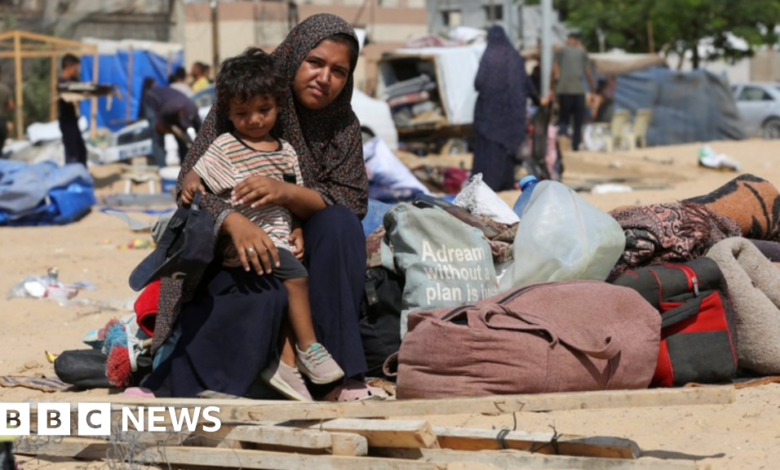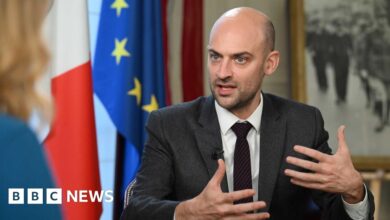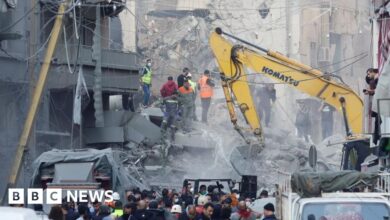US says it wants to ‘lower the temperature’ in the Middle East

The United States is looking to “cool down” in the Middle East amid growing fears of an Iranian retaliatory attack on Israel, its ambassador to the United Nations said.
On Tuesday, Linda Thomas-Greenfield told the United Nations Security Council in New York that the US wanted to “deter and defend against any future attacks and avoid regional conflict”.
There are fears Iran may retaliate against Israel following the assassination of Hamas leader Ismail Haniyeh in Tehran last month – an incident for which Israel has yet to accept responsibility.
US President Joe Biden said that reaching a ceasefire between Israel and Hamas could help prevent Iran from attacking Israel.
“That’s my expectation but let’s wait and see,” he replied when asked by a reporter on Tuesday.
“We’ll see what Iran does and see what happens if there’s any attack, but I’m not going to give up,” he said as he stepped off the plane during a visit to New Orleans, Louisiana.
A new round of ceasefire talks is expected to take place on Doha or Cairo on Thursday.
However, according to reports by the New York Times and Sky News, Hamas official Ahmad Abdul Hadi has announced that Hamas will not participate in the talks.
US Secretary of State Antony Blinken has postponed plans to travel to the Middle East on Tuesday to take part in talks to end the war in Gaza.
International mediators from the United States, Egypt and Qatar have pushed for a ceasefire deal that would see Israeli hostages released to their families and Palestinian civilians allowed to return home.
Meanwhile, Washington has also approved a $20bn (£15.5bn) arms shipment to Israel – which will take years to reach Israel.
At a Security Council meeting in New York, Ms. Thomas-Greenfield called for the ceasefire agreement to be finalized.
“A broader regional conflict is not inevitable,” she said.
“The overall goal of the United States remains to lower the temperature in the region, deter and defend against any future attacks, and avoid conflict in the region,” she added.
“That starts with completing an immediate ceasefire with the release of hostages in Gaza. We need to get this done.”
But the Palestinian ambassador to the United Nations, Riyad Mansour, accused the Security Council of not doing enough to stop Israel’s military operations in Gaza.
“Wake up. Stop looking for excuses. Stop imagining that you can convince the Israeli government to stop killing thousands of civilians, causing famine, torturing prisoners, invading and annexing our lands, while you call them, call them, ask them to stop,” Mansour said.
Israeli Ambassador Gilad Erdan claims Hamas uses civilians as targets for attacks in Gaza.
Israel launched a military operation in Gaza aimed at destroying Hamas in response to an unprecedented attack on southern Israel on October 7, in which some 1,200 people were killed and 251 taken hostage.
More than 39,920 people have died in Gaza since then, according to the Hamas-run territory’s health ministry.
Hundreds of people have also been killed in near-daily gun battles between Hezbollah and the Israeli army across the Israel-Lebanon border since the day after the conflict began.
Amid a flurry of international diplomacy aimed at easing tensions, Iran on Monday Calls rejected from Britain and other Western countries to refrain from taking revenge on Israel for the killing of Hamas leader Ismail Haniyeh.
Israel, which has not admitted any involvement in Haniyeh’s assassination, has meanwhile put its military on its highest level of alert.
The United States has warned it is preparing for “a significant series of attacks” by Iran or its proxies as early as this week and has increased its military presence in the Middle East to help defend Israel.




